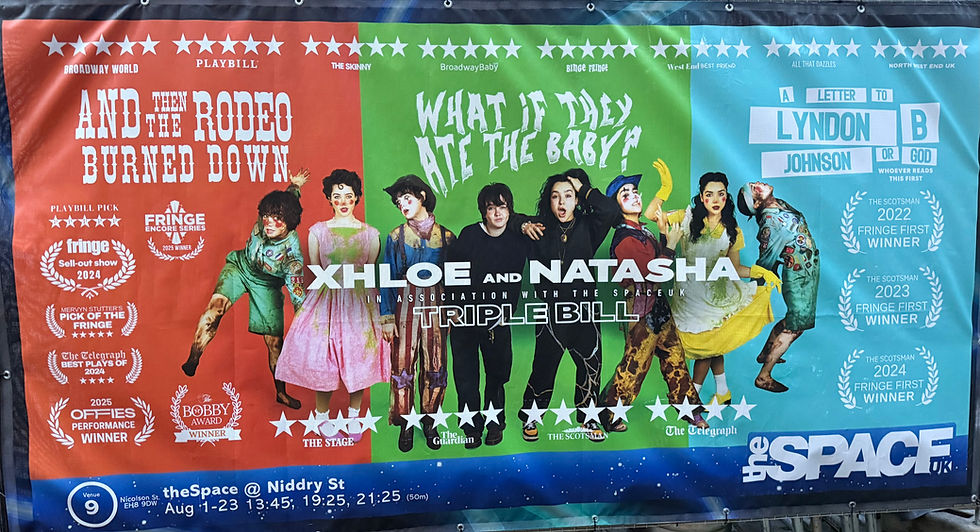Review: When We Died at Summerhall - Ed Fringe
- Aug 31, 2023
- 3 min read
Review by Carly Fisher
There are some things in life we just don’t talk about. Actually there are a lot of things.
The way that a body is prepared for burial after death is often one of those things - the intricacies of an embalmer’s work. Rape is another.
Written and performed by Alexandra Donnachie, When We Died follows the story of a protagonist, an embalmer, who loves her job - this is what she has always wanted to do, who is a middle child - close to her siblings, who is shy - but still has a good sense of humour and who is in a relationship that she is really happy in - until she changes just a bit too much.
Few shows that I’ve seen at the fringe this year have offered such whole, well developed, three dimensional characters as When We Died. By the time the action in the piece picks up, we feel like we have known the character for a long time…or perhaps that’s because this character represents just too many women we know or know of.
Donnachie’s writing is excellent - the piece is well paced, thematically heavy and challenging but infused with levity and wit when she can tell her audience needs a breath, and beautifully detailed so that despite the fact that there is no set (bar four lighting poles) and no props, the world and each scene is completely formed in our minds.
As a performer, there is a sureness about Donnachie and her skill is exceptionally high quality. Experience oozes out of this performer and for the hour that we watch her, we as an audience are totally intrigued. She is an excellent storyteller.
For as natural as the choice of delivery was vocally (a fantastic choice that kept me on the edge of my seat…despite the big revelations in the show, it felt conversational, like the character was telling me and me alone), the decision to physicalise some parts of text with an accompanying choreography of modern ‘dance,’ didn’t work for me as well. The physicalisation of the descriptions of the embalming process really worked for me. When the movements dragged over into the retelling of her stories, I felt that the trope was overused and unnatural. I think that avoiding that bleed in storytelling form between the two segments of her story would make for a stronger performance - as if to say that when she is at work she is completely at one with the process, with her body and with the body before her, and outside of work, she does not have that same confidence.
The aforementioned lighting poles were an excellent choice for much of the story because the show did not need a more established or telling set - this light touch was impactful enough. Offering shadows and a sense of time passing as we moved through the colours of these LED strips, it was a clever choice. The only negative to this was the choice of a pulsing effect that was over utilised and that the audience was not provided warning for. There were moments that I had to look down at the stage or shield my eyes from the discomfort of the intensity of the flickers.
Two small critiques for a very strong show that I think would see great success wherever Donnachie took it. There is so much I’d like to say about the actual story but that’s not the purpose of a review and I don’t want to spoil anything! My job instead is to tell you that if this show is brought to a theatre near you, it is certainly a piece of storytelling that you should not miss.
Congratulations to Donnachie and her whole team - an excellent performance and a very strong contribution to a great Fringe season.

Image Supplied




